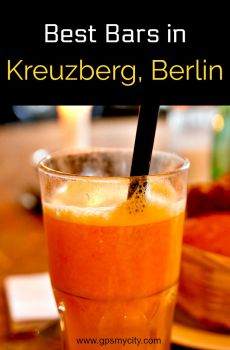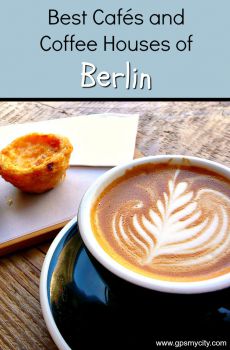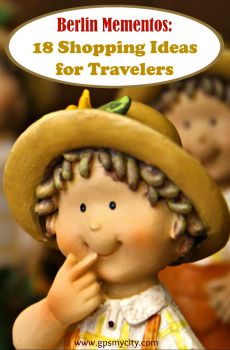
Propagandaministerium (Goebbels' Propaganda Ministry), Berlin
Shortly after Adolf Hitler assumed the position of Reich Chancellor of Germany in January 1933, Joseph Goebbels, chief propagandist of the Nazi party, was rewarded for his part in helping the Nazis seize power. He was appointed as the Reich Minister of Public Enlightenment and Propaganda, holding a seat in the Cabinet. The role of the new ministry, which took over palatial accommodation in the 18th-century Leopold Palace, just across from Hitler's offices in the Reich Chancellery, was to centralize Nazi control of all aspects of German cultural and intellectual life, news media, literature, visual arts, filmmaking, theatre, music, and broadcasting. An unspoken aim was to convey to the world that the Nazi Party enjoyed full and enthusiastic support from the entire population.
A significant focus of propaganda efforts centered on Hitler himself, who was glorified as a heroic and infallible leader and became the focus of a cult of personality. Some of this adulation was spontaneous, while other aspects were carefully orchestrated as part of Goebbels' propaganda machinery. An example of the latter can be seen in the 1934 Nuremberg Rally, which marked one of the first carefully choreographed events where Hitler's actions were staged for the camera. This rally was the subject of the film "Triumph of the Will", one of several Nazi propaganda films directed by Leni Riefenstahl.
With nationalist socialist architecture expressed in the building's structure and façade design, the Propaganda Ministry grew steadily from five departments and 350 employees in 1933 to seventeen departments and 2,000 employees by 1939. World War II witnessed a significantly heightened level of propaganda, particularly through the emerging media of film, newsreels, and radio broadcasting. Thanks to practical experience and the scientific study of propaganda in Europe and the United States, propaganda efforts were meticulously planned, giving rise to a new era of psychological warfare.
A significant focus of propaganda efforts centered on Hitler himself, who was glorified as a heroic and infallible leader and became the focus of a cult of personality. Some of this adulation was spontaneous, while other aspects were carefully orchestrated as part of Goebbels' propaganda machinery. An example of the latter can be seen in the 1934 Nuremberg Rally, which marked one of the first carefully choreographed events where Hitler's actions were staged for the camera. This rally was the subject of the film "Triumph of the Will", one of several Nazi propaganda films directed by Leni Riefenstahl.
With nationalist socialist architecture expressed in the building's structure and façade design, the Propaganda Ministry grew steadily from five departments and 350 employees in 1933 to seventeen departments and 2,000 employees by 1939. World War II witnessed a significantly heightened level of propaganda, particularly through the emerging media of film, newsreels, and radio broadcasting. Thanks to practical experience and the scientific study of propaganda in Europe and the United States, propaganda efforts were meticulously planned, giving rise to a new era of psychological warfare.
Want to visit this sight? Check out these Self-Guided Walking Tours in Berlin. Alternatively, you can download the mobile app "GPSmyCity: Walks in 1K+ Cities" from Apple App Store or Google Play Store. The app turns your mobile device to a personal tour guide and it works offline, so no data plan is needed when traveling abroad.
Propagandaministerium (Goebbels' Propaganda Ministry) on Map






Sight Name: Propagandaministerium (Goebbels' Propaganda Ministry)
Sight Location: Berlin, Germany (See walking tours in Berlin)
Sight Type: Attraction/Landmark
Guide(s) Containing This Sight:
Sight Location: Berlin, Germany (See walking tours in Berlin)
Sight Type: Attraction/Landmark
Guide(s) Containing This Sight:
Walking Tours in Berlin, Germany
Create Your Own Walk in Berlin
Creating your own self-guided walk in Berlin is easy and fun. Choose the city attractions that you want to see and a walk route map will be created just for you. You can even set your hotel as the start point of the walk.
Museum Island Walking Tour
One of Berlin’s most visited attractions, the Museum Island ("Museumsinsel") complex was established by order of King Frederick William IV of Prussia in 1841 and houses several world-famous museums kept in close vicinity of each other. The island itself is spectacular for a walk, with wonderful architecture, statues, gardens and trees, so enjoy the atmosphere and make at least a day... view more
Tour Duration: 1 Hour(s)
Travel Distance: 1.2 Km or 0.7 Miles
Tour Duration: 1 Hour(s)
Travel Distance: 1.2 Km or 0.7 Miles
Berlin Food Walking Tour
While Berlin may not be considered a typical foodie destination yet, recent years saw a growing number of decent places to eat, serving both German and international cuisine. At some point, the city has even earned itself the title of a vegetarian capital of the world, contrary to what one may have expected. Amid all this renaissance in creativity and culture, coupled with the influx of the... view more
Tour Duration: 1 Hour(s)
Travel Distance: 1.4 Km or 0.9 Miles
Tour Duration: 1 Hour(s)
Travel Distance: 1.4 Km or 0.9 Miles
Third Reich Walking Tour
The “Third Reich” and “Nazi Germany” are the common English names for Germany between 1933 and 1945, when it was a totalitarian state led by Adolf Hitler and the National Socialist German Workers’ Party. For any visitor to Berlin, the Nazi surrender that ended World War II is still a point of interest, but matching locations to those moments of history can be a challenge. On this special... view more
Tour Duration: 2 Hour(s)
Travel Distance: 4.0 Km or 2.5 Miles
Tour Duration: 2 Hour(s)
Travel Distance: 4.0 Km or 2.5 Miles
Alexanderplatz Walking Tour
One of Berlin’s cosmopolitan hearts, Alexanderplatz (or Alexander Square) is a true hive of activity. There is always something going on here: Christmas markets, Easter fairs, buskers, performances, Oktoberfest, and the list is countless. Easily accessible, with lots of transport connections and all manner of drink and food outlets, it’s a great place to hang around, take photos, and enjoy... view more
Tour Duration: 1 Hour(s)
Travel Distance: 1.6 Km or 1 Miles
Tour Duration: 1 Hour(s)
Travel Distance: 1.6 Km or 1 Miles
Berlin Introduction Walking Tour
The German capital, Berlin, is known for its turbulent past. Today, this sprawling metropolis is filled with a mix of historical resonance and modernity manifested in creative industries, popular media, and diverse cultural tourism.
The first written records of settlements in the present-day Berlin area date back to the late 12th century. In 1157, the region came under German rule as part of... view more
Tour Duration: 2 Hour(s)
Travel Distance: 4.0 Km or 2.5 Miles
The first written records of settlements in the present-day Berlin area date back to the late 12th century. In 1157, the region came under German rule as part of... view more
Tour Duration: 2 Hour(s)
Travel Distance: 4.0 Km or 2.5 Miles
Tiergarten Walking Tour
Known for the huge park of the same name, which once was a royal hunting ground, the central district of Tiergarten (German for “Animal Garden”) is home to the Berlin Zoo, the Victory Column with its winged statue and the lively, lakeside Café am Neuen See.
Begin your exploration at Postdamer Platz, the historic central square of Berlin, once regarded in the same way as Piccadilly Circus... view more
Tour Duration: 2 Hour(s)
Travel Distance: 3.4 Km or 2.1 Miles
Begin your exploration at Postdamer Platz, the historic central square of Berlin, once regarded in the same way as Piccadilly Circus... view more
Tour Duration: 2 Hour(s)
Travel Distance: 3.4 Km or 2.1 Miles
Useful Travel Guides for Planning Your Trip
Best Food in Kreuzberg, Berlin
Kreuzberg is known for having great cheap, street food, particularly of the Middle Eastern variety. On almost every corner you can find a kebab or falafel shop, although the trick is knowing which to choose! While you can typically get a good, tasty wrap for €2.50-4, the quality, quantity and...
A Self-Guided Food Walk in Berlin
Repeatedly scarred throughout its long and often depressing past, today's Berlin has made a comeback as a major bohemian hub which lures artists and creatively-minded folk from all over the globe in their droves. It may well not be considered a typical foodie destination yet, but in recent...
Best Bars in Kreuzberg, Berlin
Kreuzberg and "Kreuzkölln" - the area where Kreuzberg and Neukölln meet, mostly along the canal in east Kreuzberg and north of Sonnenallée in Neukölln - has a constantly and rapidly evolving bar culture that makes it one of the trendiest alternative evening and nightlife spots in...
Best Cafes in Kreuzberg, Berlin
Traditionally, you may expect the cafes around Kottbusser Tor and throughout Kreuzberg to be dominated by ethnic Turks, particularly men, in rooms that do much to resemble the cafes of Istanbul.
More recently, however, the ethnically Turkish and Arab communities that have typically inhabited...
Best Cafés and Coffee Houses of Berlin
Cafes have a certain refinery and elegance that pubs lack; there is a mellowness that is rarely found in bars and clubs, and an ease and tranquillity that is not to be found in restaurants with their steaming kitchens, heavy plates, clattering cutlery, constant complaints and corrections and,...
Berlin Mementos: 18 Souvenir Shopping Ideas for Travelers
Too many people and for very different reasons strove to set their foot in Berlin over the course of the 20th century. Today, the city proves just as luring a destination for numerous travelers who want to come and enjoy themselves in this fascinating European capital and, perhaps, bring home...












